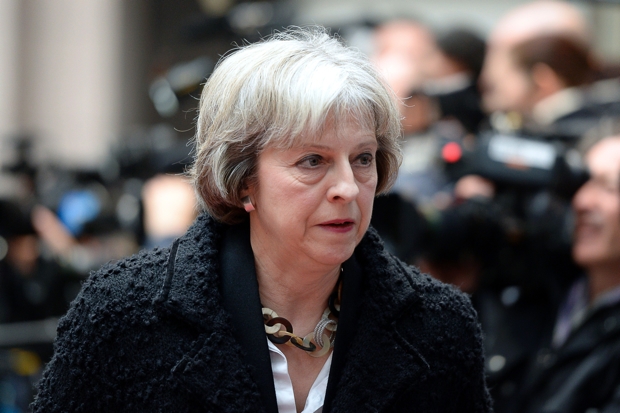On Sunday I watched in disbelief as Theresa May was asked about the status of EU citizens already in the UK. She failed to do the obvious – to guarantee as Home Secretary the rights of EU families living and working here to stay in Britain.
In a debate on Monday not a single MP on either side of the House – whether Leave or Remain – supported the Government’s position. An opposition motion to support rights of EU nationals yesterday won by 245-2.
Theresa May appears on course to become our next Prime Minister. She will have the responsibility on her shoulders of clearing up the mess we are in.
This is her first test. This also is partly her mess.
She is a Remainer who didn’t campaign. She played no meaningful role in the campaign to keep Britain in the EU. Imagine if Osborne had been as absent as May. Two issues dominated this debate – the economy and immigration. It’s true that Osborne and Cameron failed to cut through with the strong positive patriotic economic case for staying. But you cannot deny they tried.
With May, it’s different. By her silence she helped ensure Brexit happened. She failed to intervene when Leave campaigners sought to lure voters with Commonwealth backgrounds into the Leave camp with suggestions that this would help them get entry for family members or Priti Patel’s promise that curry chefs would get more visas. These restrictions have nothing to do with Brussels. The rules were made by the Tories.
Her silence then might play well for her in the leadership elections as she seeks the mantle of the unity candidate.
But her indecision now on the status of EU nationals risks not only her reputation – it risks much more besides. It risks the welfare of thousands of children and cohesion in our communities.
A few days ago I met local school children to discuss their reactions to Brexit. It’s a conversation Theresa May should have been at.
In one of my schools, 15 per cent of the children have an EU passport. They speak English. They study maths and science and play sports with their friends. Their parents work like any other taxpayers. Many of them were born here or lived here for years. ‘Before the referendum I felt British. Now I don’t feel I belong here,’ said one 14 year old. ‘I don’t feel proper British now – it’s mixed because I do feel British as I was born here.’
On the day after the referendum, it wasn’t just adults and politicians that woke up to the result, it was children. ‘I was scared I would be asked to leave. I was listening to other people who said I would have to.’ ‘My friends from the EU don’t feel safe anymore. It affects our relationship with each other.’
When relationships in families break down we know how to handle it. We have systems and procedures. This is something far deeper. Thousands of children who slept soundly two weeks ago and played with friends in a nation proud of its diversity now wonder if they will be deported. They need to hear loud and clear that we won’t do that to them.
Yesterday the devastating Chilcot report reinforced two startlingly clear lessons we need to learn. Firstly, a huge national decision was taken without people voting on clear evidence and believing much on trust. It is not wise to overstate what might be achieved or play down the risks. Secondly, the lack of preparation for the aftermath and lack of leadership through it, itself has enormous consequences.
Our nation is divided over a different huge decision which is the most divisive since the Iraq War. We are at the start of the aftermath. The tone and leadership our Government adopts now will play a huge part in how we heal and move forward, and our success in negotiations. Children are not bargaining chips. For the sake of our country, our credibility, and the children we have a responsibility to, the Home Secretary has the opportunity now to display the moral and political leadership that is needed. The country is looking to her to act.
Seema Malhotra is Labour MP for Feltham and Heston.






Comments